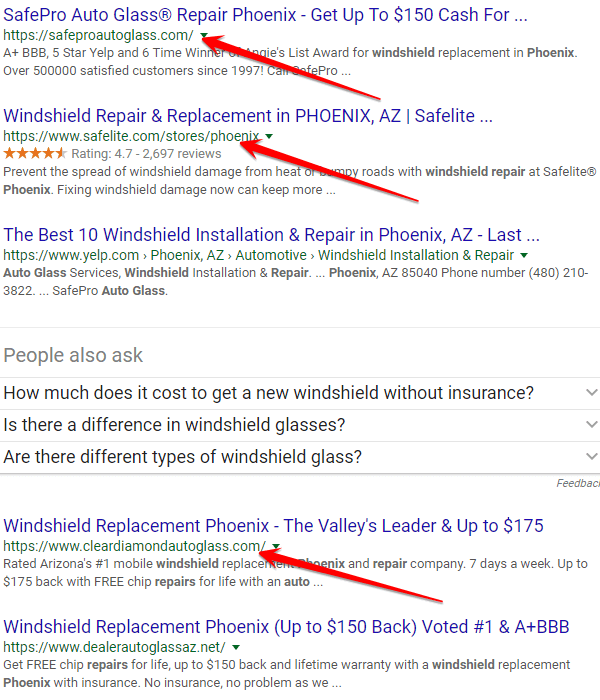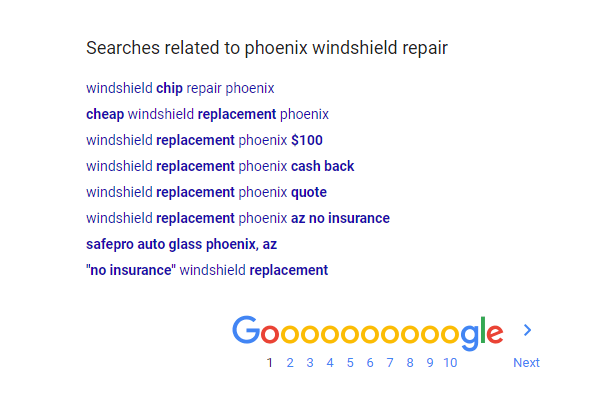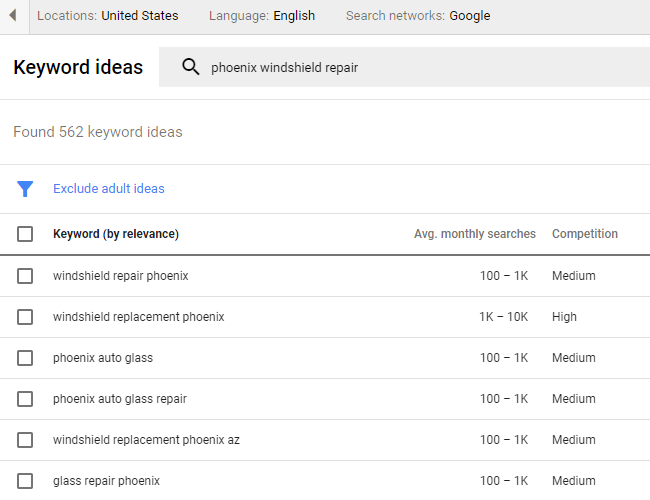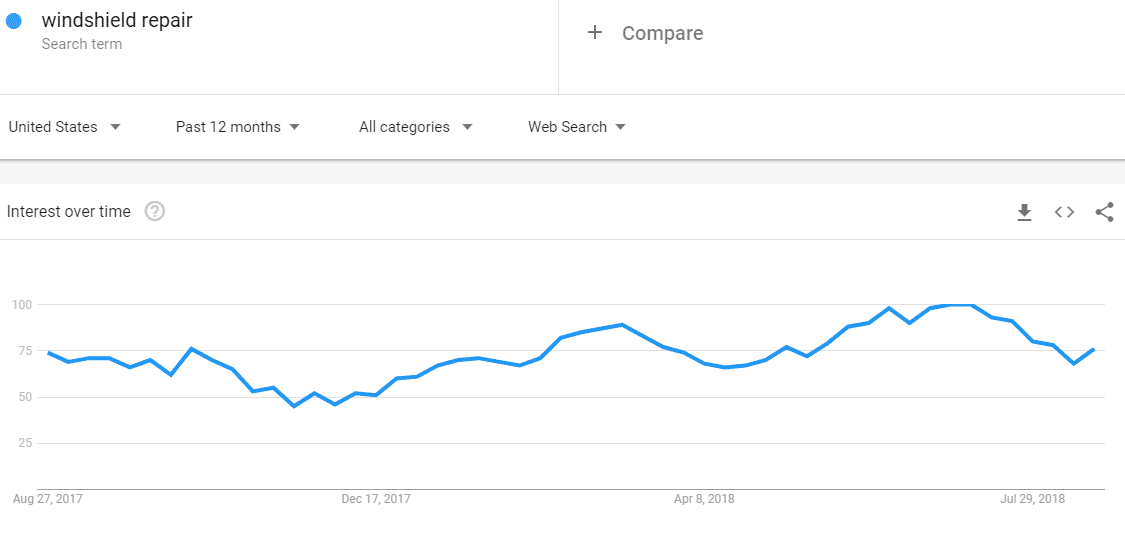Keyword research is important when designing and developing a website, strategizing for a search engine optimization campaign, creating a pay-per-click advertising strategy, or scheduling content for your social media marketing channels. Actually, let me clarify, keyword research is extremely important regardless of what type of digital marketing you are doing.
This blog post will cover how to research keywords and begin to build a keyword strategy for your client or your own business. We will look at what your top competitors are using for keywords on their site, how to use the Google Ads keyword planner, and we will tell you about one of the most underutilized tools for keyword research on the market (and it is absolutely FREE to use)!
If you don’t already understand SEO, I suggest you read this article on what is SEO and why it is important or ask the public before we get going.
The process below is the EXACT one we use at Flying V Group to identify the keywords that are the most important and available for targeting for our clients.
So, let’s dive right into it…
How to Research Your Competitor’s Keywords
A great way to start to build your keyword list and strategy is to research competitors that are already successful, from an SEO standpoint, in your industry. Running a simple Google search with your main keyword and reviewing the top three (3) competitors’ sites that rank highest is a great way to understand what it is they are doing from an SEO and keyword standpoint.
In order to find what keywords your competitor is using, use the following steps:
- Head to Google and type in your service or product and a location, if necessary.
- Open the top three ORGANIC links that show up. These are your competitors. Make sure you are not pulling sites like Yelp!, but actual competitors’ sites.
- Right click anywhere on the competitor’s homepage or any other service/product pages that you want to research.
- Select ‘Page Source’.
- On the source page, click Control + F.
- Search for keywords by searching for Heading tags. In the search box enter things like h1, h2, or h3, which are tags for page headings that normally include keywords.
- Record what you find.
When you are browsing a competitor’s site, be sure to track the search terms they are using. It is important to remember that not all sites are configured perfectly for SEO. Ideally, only one H1 tag will be found on a page with multiple subheadings (H2 H3, etc.) found below that. Here’s a post that highlights SEO tactics for website optimization so you know what you should be looking for on the competitors’ sites.
You will start to see a pattern of keywords that your top competitors are using, which should help you determine which keywords you will be targeting for your client’s business or your own business.

Use Google’s Related Keyword Results
When you perform the above search you can also use a simple tool that Google provides instantly when you ran your search. If you scroll to the bottom of your search results you will see an area titled ‘Searches related to…’.
Make sure to note all of these keywords that you find here because this might be a way for you to create a new page on your site targeting one of these related keywords. Remember, the keyword that you searched for initially is probably the keyword that a majority of users will search for online. This keyword will be extremely competitive to rank for and will take some time and a lot of effort. But, by targeting one of these related keywords, you might be able to rank a page quicker than you would be able to rank a page for the main keyword.

How to Use Google Ads Keyword Planner for Keyword Research
Google Ads is another great source for researching keywords. You will need to sign-up for a Google Ads account if you do not already have one, but it is free and you do NOT have to run ads to use the keyword planner. To sign-up, follow the link found here.
Once you have signed up for an account, use the following steps to use the Google Ads Keyword Planner for keyword research:
- Open your Google Ads account and enter into a campaign.
- Select ‘Tools’ from the top right corner of the screen.
- Navigate to the ‘Planning’ section and select ‘Keyword Planner’.
- Select ‘Find Keywords’.
- Enter either a keyword, keyword phrase, or URL that is related to your business. You can enter multiple keywords and keyword phrases, but only one URL.
- If you are selecting a URL you can use the entire site or only the specific page (like a service page).
- Click ‘Get Started’.
The Keyword Planner will take the keyword, keyword phrases, or URL and show you what keywords are related to the specific search information you entered. Things like ‘Average Monthly Searches’, ‘Competition’, ‘Ad Impression Share’, ‘Top of Page Bid (low range)’, and ‘Top of Page Bid (high range)’ will all be provided. There will aslo be much more information you can look at if you get into customizing the results.
For SEO campaigns and web design we want to look for keywords that fit into the happy medium that are not extremely competitive but have a decent number of monthly searches. If you can get a percentage of those monthly searches and traffic to your client or business’s website, you will find success.
The information from the keyword planner can be downloaded and exported into Excel for easy data manipulation. By now you will have a really good feel of the keyword environment surrounding your main keyword. These are the keywords that you will be using when creating your client’s website or one that you will use to create an effective SEO strategy.

The Most Underutilized Tool for Keyword Research
Everyone talks about keyword research and how to do it, but very rarely do I see people mentioning this last tool that we use to solidify our keyword research, which is the foundation of our digital marketing strategies.
Google Trends is an extremely beneficial tool that Google provides completely FREE that allows users to see what people are searching for and what keywords are trending. The tool offers tons of valuable insights and is one of the best tools to use for keyword research.
Use Google Trends. We can’t stress it enough!
Here is how to use Google Trends for keyword research:
- Navigate to ‘Google Trends’ (https://trends.google.com/trends/).
- Enter your search term or topic in the interface.
- Select your search term from the dropdown.
It’s that simple.
You will get data on the search term you entered including number of searches performed, ‘Interest Over Time’, ‘Interest by Subregion’, ‘Related Topics’, and ‘Related Queries’. You will also be able to filter across items like ‘Region’, ‘time’, ‘categories’, and types of Google searches (Image, Video, etc.).
One of the best tools from Google Trends is the ‘Related Queries’ section in which you can see searches that are rising or trending. These trends can help you shape your keyword strategy and get ahead of future trends. Things like creating a blog post around a trending keyword would be a very good idea.
Google Trends is one of our favorite tools and gives you a large amount of amazing data that will help you to build a flawless SEO strategy for online success.

Why is Keyword Research Important?
Keyword research is the foundation of digital marketing. Whether you are completing a new website design, strategizing for a search engine optimization campaign, creating content for your social media marketing strategy, or preparing to create a pay-per-click advertising campaign, keyword research is the first thing you are going to do.
Clustering the keywords without thinking about search intent and traffic potential will be a big mistake.
The tools that are provided in this blog post are ones that will create an extremely strong set of data for you to build and revolutionize your digital marketing strategy.
Thank you so much for reading and please let me know if you have any questions or need any clarification on anything I wrote about. I appreciate you reading and all of your support.






0 Comments